A rediscovered gem from Charles Burnett, plus the best films to see in L.A. this week
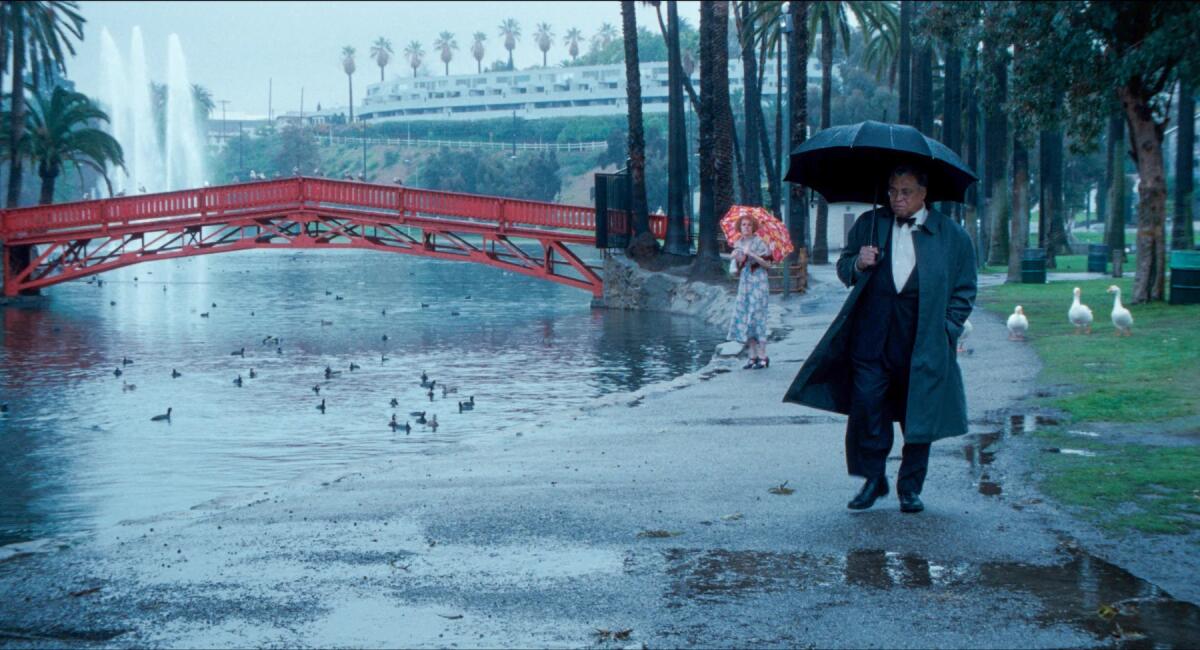
- Share via
Hello! I’m Mark Olsen. Welcome to another edition of your regular field guide to a world of Only Good Movies.
Ahead of the opening of writer-director Alex Garland’s “Civil War” next week on April 12, I spoke to the film’s stars Kirsten Dunst and Cailee Spaeny about their dynamic, on-screen and off.
In the film, Dunst plays Lee, a veteran photojournalist attempting to make her way across a war-ravaged America to an interview with the president, holed up in the White House. She meets aspiring photographer Jessie, played by Spaeny, and takes her along. While the film is a provocative powder keg about the polarization dividing people around the world (its nightmare scenario seems all too plausible), “Civil War” is also a tender examination of legacy and what we leave behind.
The relationship depicted in the film between the two women, each drawing something from the other, is mirrored somewhat by the friendship off-screen between Dunst and Spaeny. In fact it was Dunst who recommended Spaeny to filmmaker Sofia Coppola for the title role in “Priscilla.”
“Those parallels aren’t at all how I feel I would talk to Cailee about being an actress or something,” said Dunst of the connections between their characters and themselves. “But it wasn’t something I was thinking about while we were making it because it’s kind of corny to think about in that way. Like, ‘I’m the mentor and you are the mentee.’ It’s so much deeper than that.”
Says Spaeny, “A lot of the times I meet other actors, especially actors who have been working in the industry for a while, they have a sort of wall up. Kirsten doesn’t have that. She wears her heart on her sleeve and it makes you feel like you can be your 100% self around her.”
We’ll have more on the film next week.
UCLA Festival of Preservation
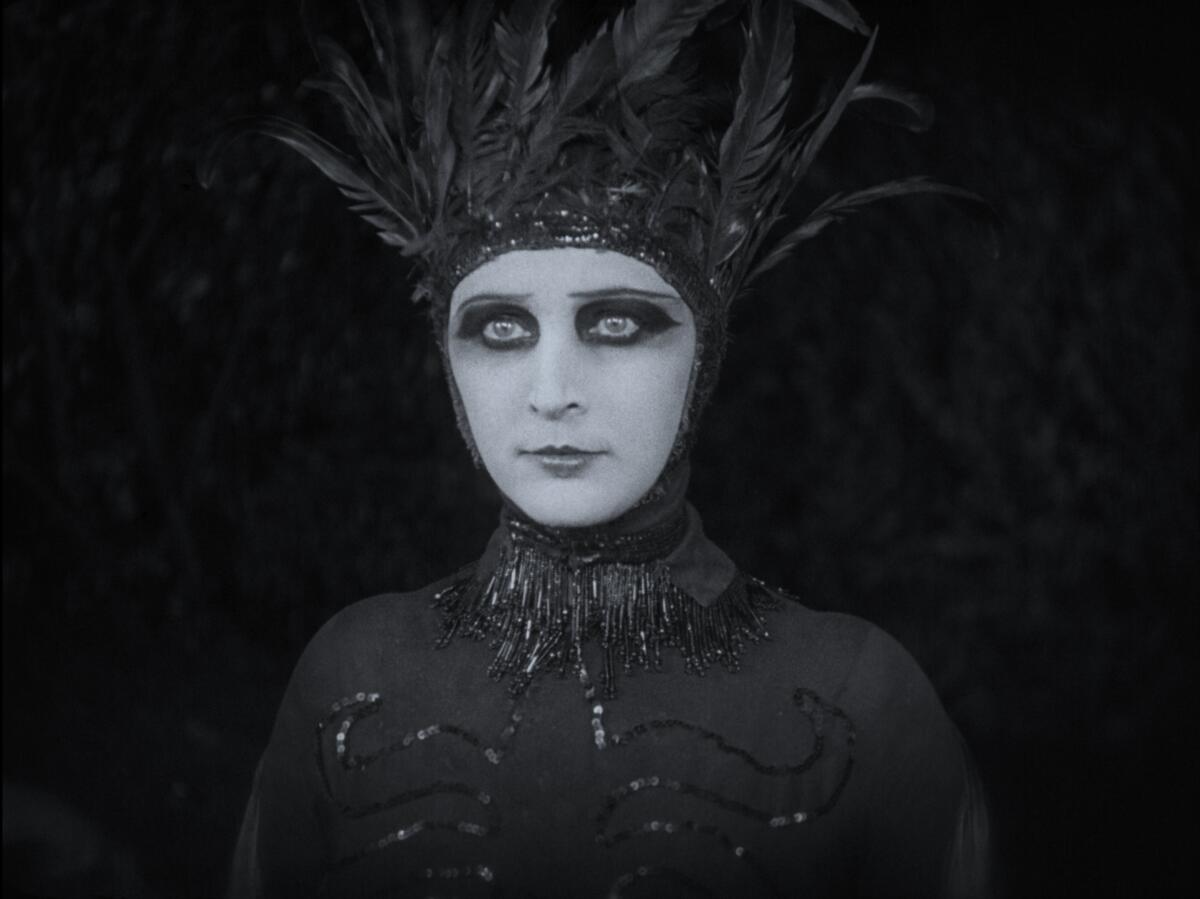
The 21st edition of the biennial UCLA Festival of Preservation opens tonight with the West-Coast premiere of the restoration of Charles Burnett’s 1999 film “The Annihilation of Fish.” After the film first played at the Toronto International Film Festival, a single negative review in Variety scared off any potential buyers and the project languished in limbo. It has never been distributed on 35mm, DCP, VHS, DVD, Blu-ray, television or streaming. Having changed hands a number of times over the years, the rights and elements for the film were eventually retrieved in part through California bankruptcy court.
A gently comic, humanist tale, the film follows two aging eccentrics, Obediah Fish (James Earl Jones) and Poinsettia (Lynn Redgrave), who meet and begin a tentative romance when they are neighbors in a boarding house run by Mrs. Muldroone (Margot Kidder).
The evening will also be a celebration of Burnett’s upcoming 80th birthday, with the filmmaker in conversation with critic Elvis Mitchell before the screening. Burnett, whose films include 1978’s “Killer of Sheep” and 1990’s “To Sleep With Anger,” was awarded an honorary Oscar in 2017. In a statement announcing the restoration of “The Annihilation of Fish,” Martin Scorsese said, “Charles Burnett is one of the finest filmmakers in this country. His pictures speak in a cinematic voice that is uniquely and completely his own. For much too long, ‘The Annihilation of Fish’ has been in limbo. … I’m so happy that it’s finally ready for the world to discover.”
When the film played in September 2000 as part of the Silver Lake Film Festival, The Times’ Kevin Thomas wrote positively about it, noting it “is so theatrical in nature that it could go fatally awry at any moment, lapsing into excess or mere whimsy. But the solid subtext to Anthony C. Winkler’s script and the ability of director Charles Burnett to see Winkler’s seeming crazies steadfastly as real people first of all allows Lynn Redgrave, James Earl Jones and Margot Kidder to soar. … Poinsettia is a would-be Blanche DuBois made brave and tenacious by love, and Redgrave surpasses her Oscar-nominated performance in ‘Gods and Monsters.’”
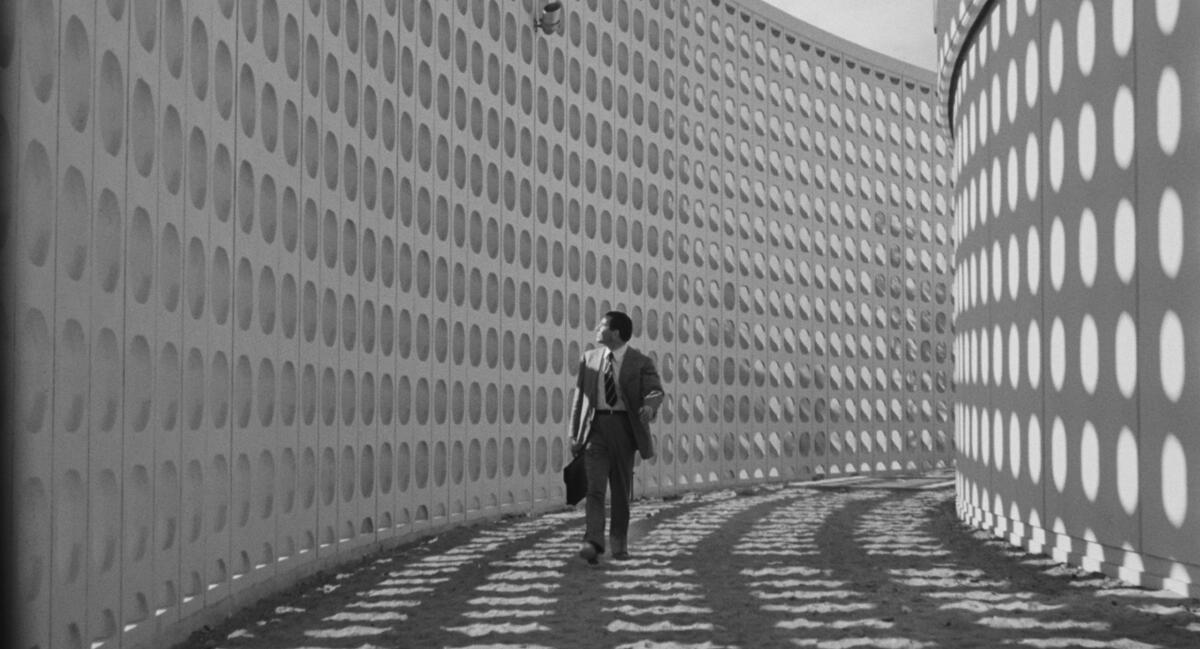
Kenneth Turan runs down a number of other highlights from this year’s festival, noting, “It’s not just gorgeous new versions of films you’ve never seen or seen only in diminished condition. The UCLA event inevitably includes remarkable movies you never even knew existed, films that expand our knowledge of the extent of the vast cinematic universe.”
Among those titles Turan spotlights are the 1925 silent German version of “A Midsummer Night’s Dream” that was thought to be completely lost until a print was discover buried under a cellar floor coated in machine oil somewhere in Oregon. There is also the 1952 film noir “No Abras Nunca Esta Puerta/Never Open That Door” from Argentina.
The festival closes with “Smog,” an Italian-language film from 1962 shot in Los Angeles. As Turan writes, “The plot, about a tourist taking in the city between flights, is not spectacular, but the extensive black-and-white views of how things looked here 60 years ago are a knockout. You may not have known about this film, but watching it will widen your horizons, something this festival has always specialized in.”
The inaugural Los Angeles Festival of Movies is underway
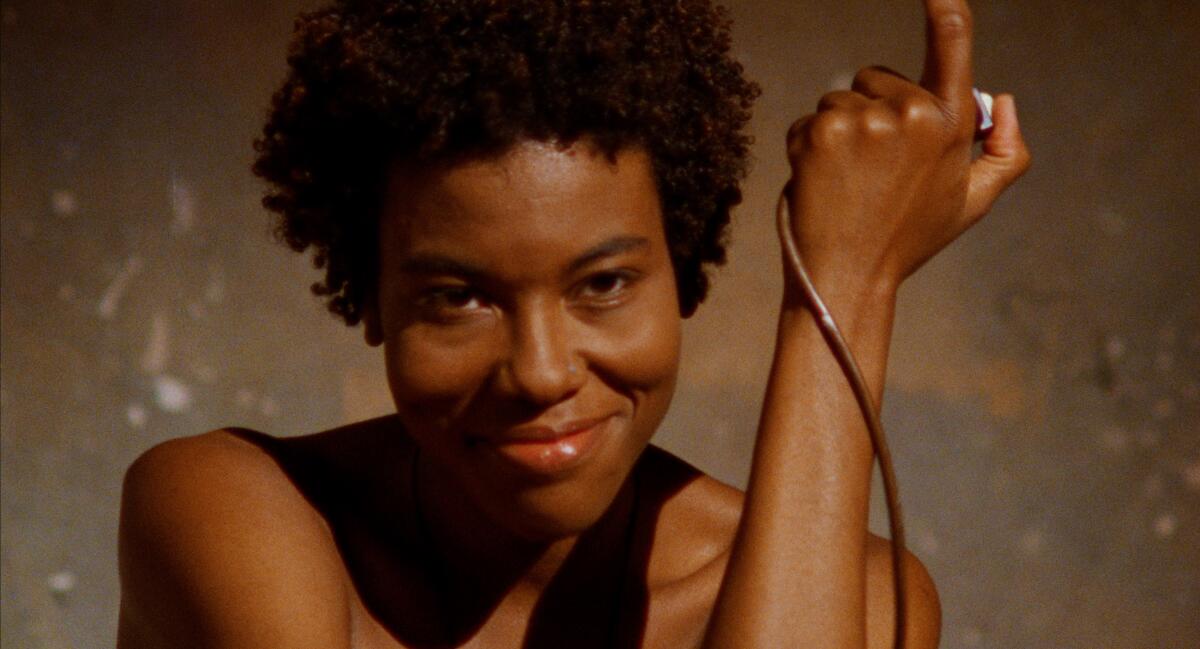
The first Los Angeles Festival of Movies kicked off Thursday night with the Los Angeles premiere of Jane Schoenbrun’s evocative coming-of-age saga “I Saw the TV Glow.”
“This is special,” said Schoenbrun introducing the screening. “It’s the opening night of the opening edition of the festival. So that’s trivia.”
The festival continues through the weekend, with other highlights including the docu-fiction hybrid “Gasoline Rainbow,” the restoration of Niki de Saint Phalle’s 1976 “Un rêve plus long que la nuit” presented by curator Miriam Bale, and the closing night world premiere of Conner O’Malley and Danny Scharar’s satirical “Rap World.”
A real discovery of the fest might land on Saturday afternoon with the Los Angeles premiere of the 4K restoration of Bridgett M. Davis’ 1996 “Naked Acts,” with the filmmaker in person in conversation with Black Film Archives’ Maya S. Cade. Initially self-distributed, the film is an exploration of Black female sexuality and identity and the struggles to live a creative life, told through the story of an actor grappling with whether to perform a nude scene.
Saturday will also see a conversation between filmmakers Raven Jackson and Kahlil Joseph, while Sunday will feature a talk between musician Kim Gordon and author Rachel Kushner.
In our interview back in February announcing the festival, co-founder and co-producer Sarah Winshall said, “What we’re trying to do is treat Los Angeles like a small town in some ways, and create a festival for a small community that is really excited and passionate.”
Other points of interest
Bertrand Bonello’s ‘The Beast’
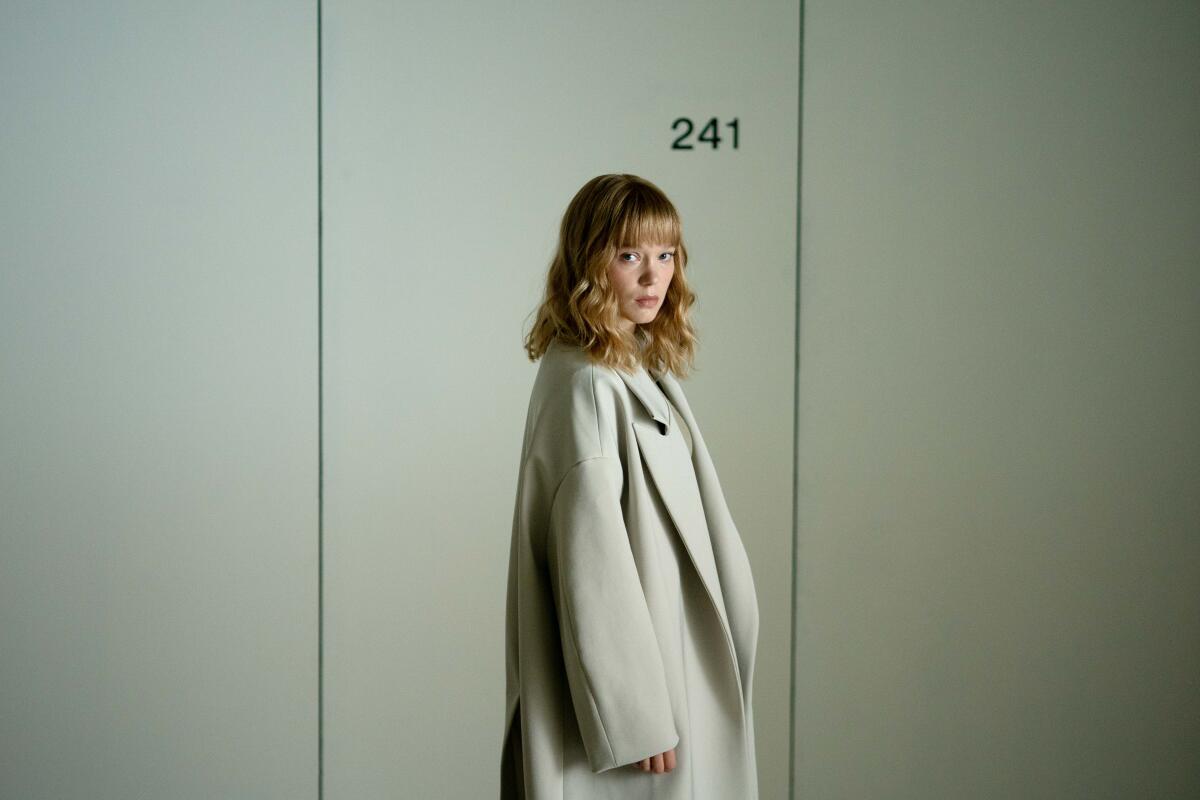
The French filmmaker Bertrand Bonello has become a real favorite around these parts, as his films often cast an eye to the past while also capturing a sense of the anxieties of what it is to live today. Two of his best films, “House of Pleasures” and “Nocturama,” are currently available on the Criterion Channel.
His electrifying new movie “The Beast” is in theaters now. Loosely adapting a 1903 Henry James novella, Bonello fractures the story to take place in three time periods: Paris in 1910, Los Angeles in 2014 and back to Paris in 2044. Characters named Gabrielle (Léa Seydoux) and Louis (George MacKay) are kept apart from each other by different circumstances each time.
I spoke to Bonello, MacKay and Seydoux for a story that will be publishing soon. The production actually shot only a couple of days in Los Angeles, with a house in the South of France standing in for a home in the Hollywood Hills. Yet even shooting in L.A. for a short while was meaningful for Bonello.
As he told me, “I really loved it because it’s like the history of cinema. When you arrive and wherever you put your camera, of course it reminds you of so much. You’re in the heart of the cinema, in a way.”
Reviewing “The Beast” for The Times, Tim Grierson wrote that it “may ostensibly be about artificial intelligence, but it’s really about the terror of being alive.”
Jean-Pierre Melville’s ‘Le Samouraï’
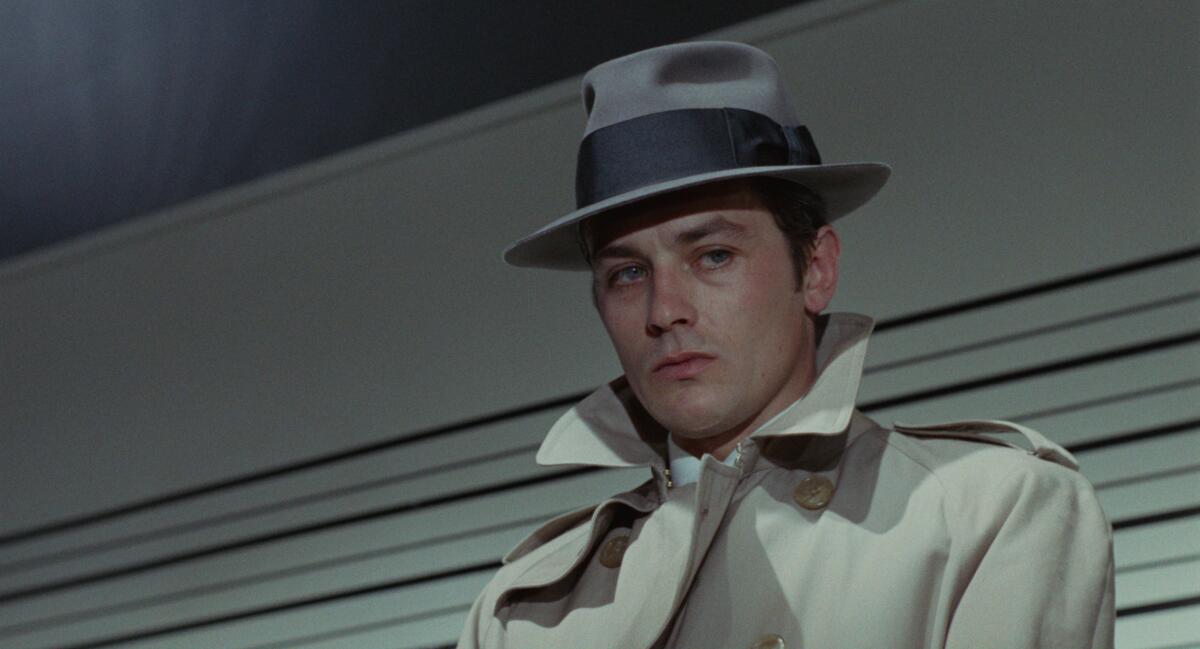
I am quite sure we have talked here about Jean-Pierre Melville and his masterful “Le Samouraï” more than once. But to me it is a movie I simply never tire of. It endlessly reveals itself: a philosophical meditation on not just the gangster film but one’s relationship to life and work. A new 4K restoration from the original 35mm negative opens this week at the Laemmle Royal and Laemmle Glendale.
John Woo famously said the film is “the closest thing to a perfect movie that I have ever seen,” and it’s easy to see why. Melville pares down his storytelling to the barest essentials as he follows a Parisian hit man, Jef Costello (played by Alain Delon, his impossibly handsome good looks arguably never put to better use). Jef must avoid being picked up by the police after a perfectly planned job goes awry.
Writing about the film in 1997, Kenneth Turan said, “Despite [his] attention to detail, Melville was the first to almost brag that ‘I am careful never to be realistic.’ Stylization was his overriding concern, down to the white film editor’s gloves he has all his protagonists, Jef Costello included, put on before committing crimes. Equally artificial is the quote from ‘The Book of Bushido’ that starts the film: ‘There is no greater solitude than the samurai’s unless it be the tiger in the jungle.’ It sounds too perfect to be real, and in fact Melville claimed he made it up. However, what is genuine about ‘Le Samourai,’ the passion that Melville felt for this quintessentially American genre, is strong enough to make this one of the glories of the modern gangster film, elegant, romantic and unforgettable.”
Alice Rohrwacher’s ‘La Chimera’
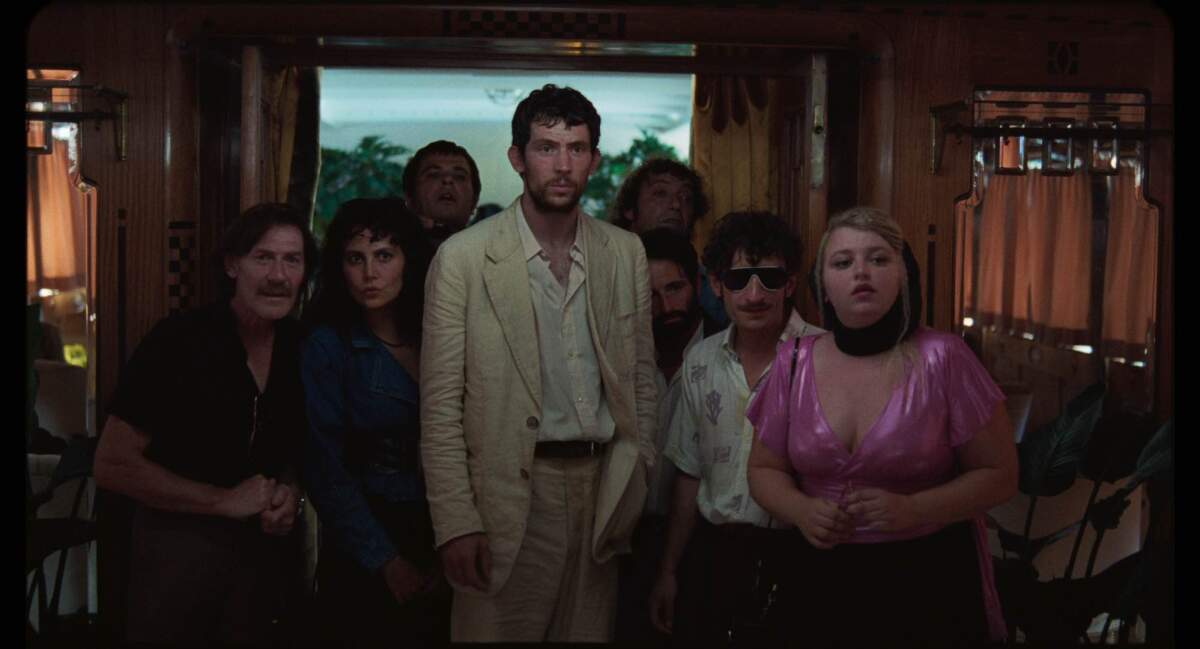
Though it first opened locally last week, Alice Rohrwacher’s “La Chimera” has expanded to more theaters and is easily among the best new releases of the year so far. We didn’t want to let it be overlooked here.
Set in Italy in the 1980s, the film follows British expat Arthur (Josh O’Connor) who has a knack for uncovering Etruscan artifacts that he can sell on the black market. Living on life’s margins, he is haunted by a past love as he tries to find a way forward.
In his review of the movie for the paper, Carlos Aguilar wrote, “In a way, it allows the viewer to traverse time and space, one luminous image at a time. A staunch humanist, Rohrwacher makes movies that are primed for immortality. If her latest is somehow discovered 2,000 years from now among the ruins of what we once called civilization, it would be an astoundingly flattering portrait of us. … Mournful yet exuberant, “La Chimera” is a towering work of art presented with the unassuming invitation of a warming summer morning.”
In an interview with Esther Zuckerman for The Times, Rohrwacher said, “Maybe my films are not perfect — maybe a machine could do that, but that’s not what I’m after. What I’m after is making films that are alive and that are full of life and that constantly have something new to show you, something new to tell, and indeed you can watch them over and over again and there’s always something, some kind of life that comes to you from the movie.”
Only good movies
Get the Indie Focus newsletter, Mark Olsen's weekly guide to the world of cinema.
You may occasionally receive promotional content from the Los Angeles Times.




